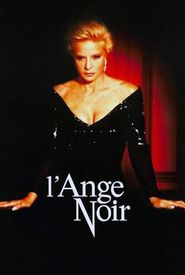Sylvie Vartan, a talented and multifaceted artist, entered the world on August 15, 1944, bearing the name Sylvie Georges Vartanian, a testament to her Armenian-Bulgarian-French heritage. As a singer and actress, she has made a lasting impact on the entertainment industry, captivating audiences with her remarkable yé-yé performances that often showcased intricate show-dance choreography, elevating the art form to new heights.
Throughout her illustrious career, Sylvie Vartan has become a household name in France and Italy, with numerous appearances on television, cementing her status as a beloved and iconic performer. Her versatility, combined with her undeniable charm and charisma, have made her a true icon of French and Italian popular culture.
Sylvie Vartan, a globally renowned French songstress, has left an indelible mark on the music industry, boasting an astonishing 50 million records and CDs sold worldwide. Her remarkable career has been punctuated by numerous magazine covers, a staggering 2000 to be exact, a testament to her enduring appeal and influence.
As the number one French female singer, Vartan has consistently mesmerized audiences worldwide with her captivating performances, cementing her status as a true legend and icon in the world of music.
Throughout the 1960s and mid-1970s, the singer's yearly shows with her then-husband Johnny Hallyday consistently drew in packed crowds, filling the iconic Olympia and Palais des congrès de Paris to capacity. Following a temporary hiatus from the stage, she made a triumphant return to the spotlight in 2004, dedicating herself to recording and performing a repertoire of soulful jazz ballads in French-speaking countries around the world.
Sylvie Vartan's life story began in the charming town of Iskrets, nestled within the picturesque Sofia Province of the Kingdom of Bulgaria, where her family's cultural roots ran deep. Her father, Georges Vartanian, was a man of international flair, born in France to a fascinating blend of a Bulgarian mother and an Armenian father, who went on to serve as an attaché at the esteemed French embassy in Sofia, bringing a touch of French sophistication to the region. Meanwhile, her mother, Ilona Mayer, hailing from a rich cultural heritage of her own, was of Hungarian-Jewish descent, adding an extra layer of complexity and diversity to Sylvie's family tree.
The Vartanian family, beset by a plethora of difficulties, navigated the treacherous landscape of the postwar era, grappling with the profound impact of the nationalization of their ancestral abode and the Soviet Army's incursion into Bulgaria. As the tumultuous circumstances continued to unfold, the family, led by Sylvie's stalwart father, made the arduous decision to relocate to the City of Light, Paris, in the year 1952.
In this new and unfamiliar environment, Sylvie's father, driven by a fierce determination to provide for his family, embarked upon a new career, securing employment and thereby ensuring the family's sustenance. As a result, the Vartanians, though still reeling from the aftershocks of their tumultuous past, gradually began to rebuild their lives, gradually settling into a small yet cozy apartment, a humble abode that would serve as their temporary sanctuary.
Sylvie's early years in the City of Light, Paris, were beset by obstacles, as she grappled to acclimate to a foreign language and culture, a daunting task that tested her resilience. However, amidst these challenges, music emerged as a beacon of solace, transforming into her most ardent passion. Adept at traversing the sonic landscapes of jazz and rock 'n' roll, she found inspiration in the works of legendary artists, including the incomparable Brenda Lee, the pioneering Bill Haley, and the iconic Elvis Presley.
Sylvie's life took a significant turn in the year 1960, as her family made the decision to relocate to a brand new apartment, a move that would ultimately have a profound impact on her future career. It was during this time that her brother Eddie, a music producer of considerable influence, began to play a pivotal role in her professional development. He extended an offer to her, granting her the chance to record her very first song, a song that would later become known as "Panne d'essence." This opportunity was made possible through a collaboration with none other than the renowned French rocker Frankie Jordan. The resulting EP was met with widespread surprise and acclaim, its popularity soaring to unprecedented heights. As a direct result of this success, Sylvie's subsequent appearances on French television earned her a nickname that would forever be associated with her name: "la collégienne du twist."
Sylvie's academic pursuits finally came to a close, marking the beginning of a new chapter in her life as she embarked on a professional music career by inking a deal with Decca Records, a prestigious and renowned music label. This significant development led to the release of her debut EP, which boasted a title track that would go on to become a fan favorite and a defining characteristic of her artistry, aptly titled "Quand le film est triste".
As her music and performances continued to gain traction, Sylvie's reputation as a talented and charismatic yé-yé artist began to take shape, cementing her status as one of the most successful and beloved figures of her generation, with a devoted fan base that eagerly anticipated her every new release and live appearance.
Sylvie Vartan's illustrious and storied career has had a profound and lasting impact on the music industry, spanning an astonishing number of decades, with her enduring reputation as a legendary and iconic figure in the world of music and entertainment continuing to be celebrated and revered by fans and fellow artists alike.
























